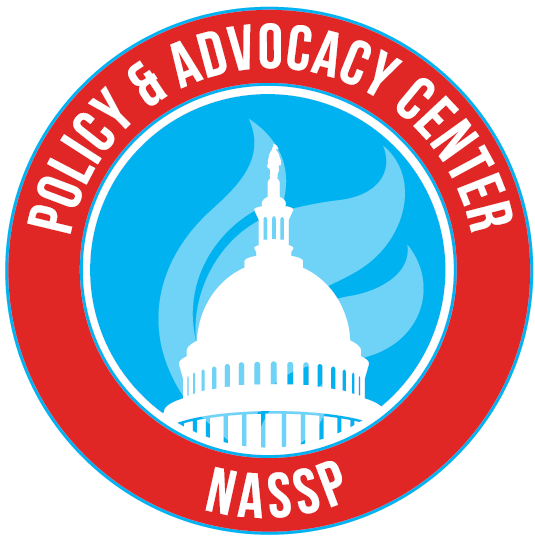To express opposition to state and district policies that allow parents to opt their children out of standardized assessments and reiterate our vision of high-quality assessments to improve teaching and learning.
State policies vary throughout the country, with some specifically allowing or prohibiting opt-outs, while others have no consequences in place if students do not participate in mandatory assessments. Many states do allow exemptions in cases of physical disability, mental health issues, or other emergencies, and two states (Oregon and Pennsylvania) allow religious exemptions. States are also considering new legislation requiring school leaders to notify parents of their right to opt out of the assessments. However, the Every Student Succeeds Act of 2015 requires schools and districts to maintain a 95 percent participation rate on state assessments, and states are required to include this as a component of their school accountability systems.

There is very little research or empirical data to explain what motivates parents to opt their children out of assessments, but many feel that it is a statement in opposition to the Common Core State Standards and aligned assessments, the sheer multitude of tests and test prep occurring in schools, and a reaction to teachers’ concerns about the overreliance of student test scores in their evaluations. As states rolled out new assessments aligned to college and career ready standards in spring 2015, the number of students opting out of the tests was on the rise. News reports indicate that 50 percent of students in New York State opted out of the state assessments, with some districts reporting opt-outs as high as 70-80 percent. An August 2015 editorial in the New York Times reported this amount to be quadruple the number from 2014 “and by far the highest opt-out rate for any state.”
Nonetheless, the public is divided about whether or not parents should have the right to opt their children out of assessments. The annual PDK/Gallup Poll released in August 2015 found that while 65 percent of the adults surveyed believe that there is too much of an emphasis on standardized testing in schools, only 41 percent believe that parents should be able to excuse their child from taking those tests. And only 31 percent of the public school parents polled said they would exercise their right to opt out.
Proponents of annual testing argue that the information gathered provides specific data on minority students, English language learners, low-income students, and students with disabilities; identifies achievement gaps; and shows where schools are having great success. High-quality assessments “generate rich data and can provide valuable information about student progress to teachers and parents, support accountability, promote high expectations, and encourage equity for students of color and low-income students (Lazarin 2014).” And now that student data is being factored into teacher and principal evaluations, a high number of opt-outs would affect those performance measures and increase the likelihood that educators receive the wrong ratings and face potential consequences.
Guiding Principles
- NASSP has a long-standing position in support of national standards that will ensure students are college and career ready upon graduation from high school, and endorsed the Common Core State Standards Initiative.
- In a position statement updated in February 2015, NASSP articulated its vision of quality assessments and proposed recommendations regarding the proper use of high-stakes assessments.
- NASSP believes that assessments must be varied, an integral part of the learning process, and used regularly to ensure that instruction promotes student success.
- NASSP believes that next generation assessments, aligned to college and career ready standards, will provide a better assessment of what a student knows and is able to do; measure what students actually need to be college and career ready; set a common benchmark across schools, districts, and states; demonstrate current achievement and growth; report on multiple measures of student performance; be tailored to the student’s ability; provide schools with more data to inform instruction; and reduce the security issues that paper tests present.
- NASSP believes that data has the power to transform teaching and learning by helping educators identify and provide supports to all students, assisting teachers and school leaders in improving their instructional practices, and informing school improvement activities.
Recommendations
Recommendations for Federal Policymakers
- Delay the use of Common Core assessment results for high-stakes accountability purposes to allow for a transition period of at least two years of experience with the assessments. Specifically, we call for a delay in invoking penalties and sanctions related to test scores on schools, principals, and teachers.
- Conduct research on the consequences, both intended and unintended, on high-stakes testing and its impact on the promotion, retention, and evaluation of students, teachers, principals, schools, and school districts.
- Provide funding for states and districts to audit their assessment systems, including the number of tests and time spent on test-taking in order to reduce redundant or unnecessary state and district assessments.
Recommendations for State Policymakers
- Invest in high-quality assessments that contain fewer multiple choice items and more constructed responses that require students to not only know, but be able to apply, key concepts to unique situations.
- Annually review the time spent by school districts on conducting state and local assessments to help limit the number of tests to the minimum amount required to obtain the critical information needed to improve student learning.
- Clearly articulate to school districts, principals, teachers, students, and parents how state assessment results will be used to improve the education of all children.
- Publicly provide information outlining the purpose of state assessments and the potential consequences to districts and schools if they do not meet their 95 percent participation rate as required by federal law.
- Provide guidance to districts about when and how to use standardized assessments to avoid duplication and assist them in streamlining their assessment schedules to reduce the testing burden on students.
- Use multiple measures of student growth in evaluating school, principal, and teacher performance, including non-assessment measures such as:
- Portfolios, performance tasks, and other examples of a student’s accomplishments
- Comprehensive personal academic and graduation plans
- Project-based learning assignments
- Attendance rates
- Discipline referrals
- Graduation rates
- Collect and disseminate data on which students are opting out of state assessments and the impact on instructional practices, teacher and principal evaluations, and school accountability.
Recommendations for District Policymakers
- Communicate directly with parents to help them understand the value of college and career ready standards and changes that will be made for teaching and student learning in schools.
- Evaluate all assessments required by the district and consult teachers and principals to determine what data they find most valuable to their instructional practice and school improvement efforts.
- Provide information to parents and the community about the purpose of all tests students are taking, whether they are required by the state or the district, and how much time students will spend on the assessments.
Recommendations for School Leaders
- Ensure teachers are provided with and obtain professional learning opportunities to interpret assessment data and use it to effectively inform instruction, advance learning, accommodate individual learning needs, and monitor student progress.
- Meaningfully engage parents and families in two-way communication regarding assessments, including how schools and families can work together to use assessment data to support student growth and learning.
Resources
Phi Delta Kappa. (August 2015). The 47th annual PDK/Gallup poll of the public’s attitudes toward the public schools.
Beaver, J. & L. Westmaas (June 9, 2015). When students opt out, what are the policy implications? Education Week.
Chingos, M. (April 9, 2015). Opt-out movement likely inconsequential for teacher evaluations. Brookings Institution.
Education Commission of the States (February 2015). Assessment opt-out policies: state responses to parent pushback.
Hess, Frederick M. (May 5, 2015). Opt-out parents have a point. U.S. News & World Report.
Lazarin, M. (October 2014). Testing overload in America’s schools. Washington, DC: Center for American Progress.
National Association of Secondary School Principals (2011). Breaking ranks: The comprehensive framework for school improvement. Reston, VA: Author.
National Association for Secondary School Principals (2014). Policy recommendations for college and career ready standards in secondary schools. Reston, VA: Author.
NASSP Position Statement on Common Core State Standards and Assessments in K-12 Education (July 2013). Retrieved from https://www.nassp.org/policy-advocacy-center/nassp-position-statements/common-core-state-standards-and-assessments-in-k-12-education/.
NASSP Position Statement on High-Stakes Assessments (February 2015). Retrieved from https://www.nassp.org/policy-advocacy-center/nassp-position-statements/high-stakes-assessments/.
New York Times (August 14, 2015). Opting Out of Standardized Tests Isn’t the Answer. Retrieved from http://www.nytimes.com/2015/08/15/opinion/opting-out-of-standardized-tests-isnt-the-answer.html?_r=0.
U.S. Department of Education (December 22, 2015). Letter to Chief State School Officers. Retrieved from http://static.politico.com/91/83/62d5ae204801930db4d13738603a/education-department-guidance-to-states-regarding-key-assessment-requirements.pdf

